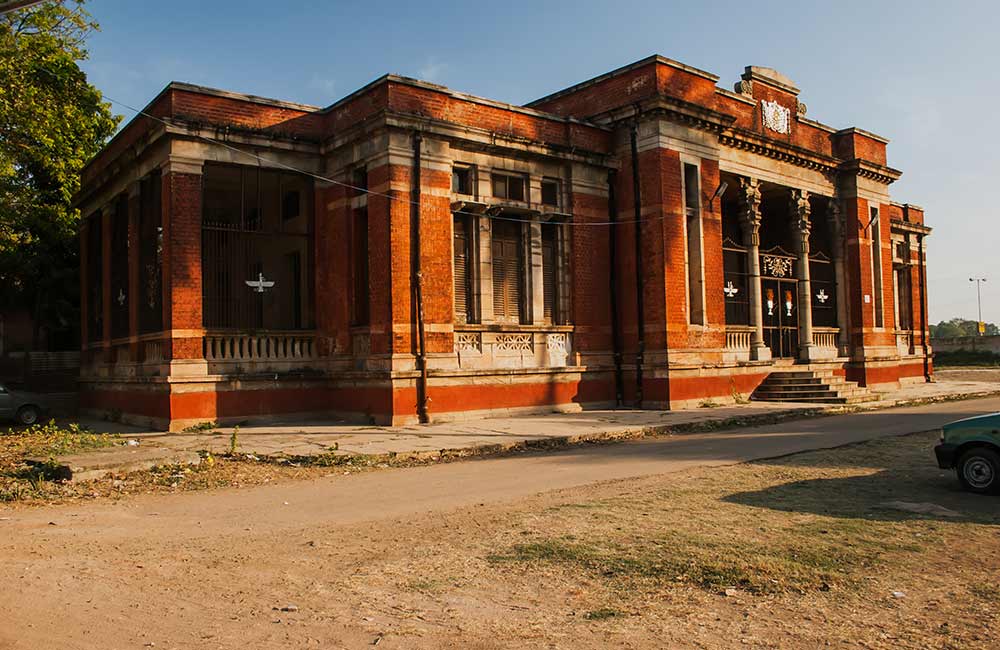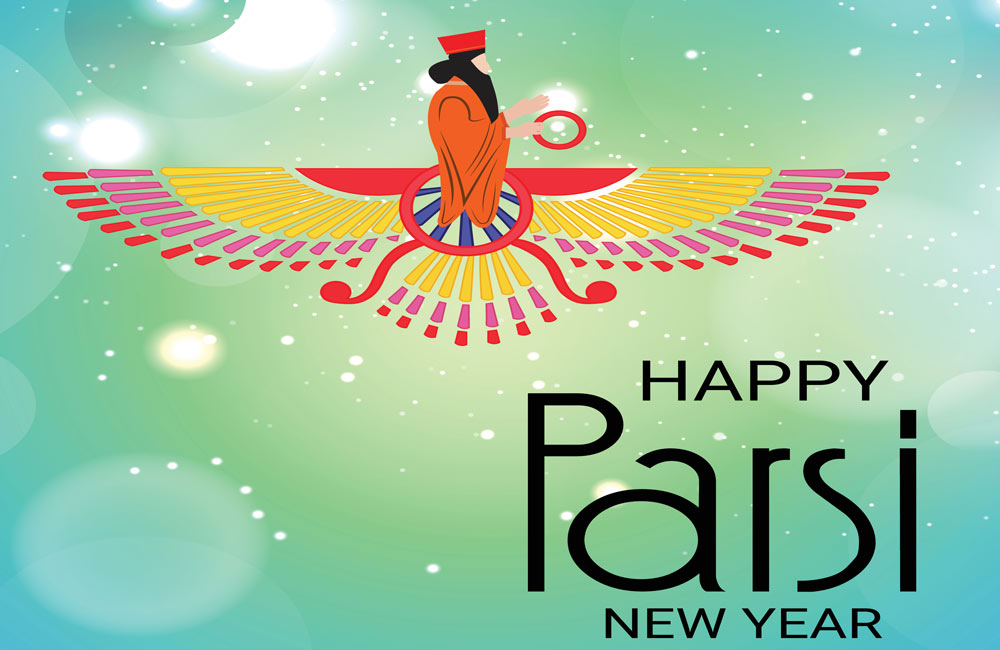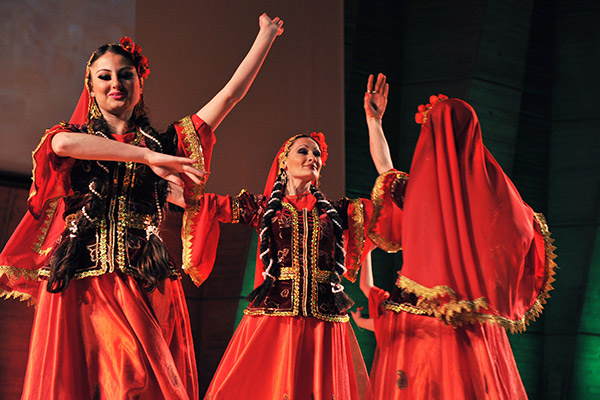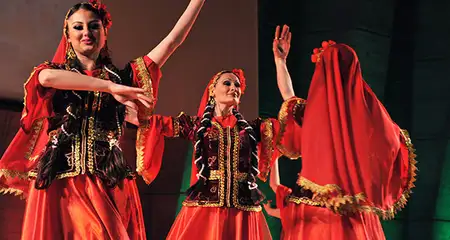The Parsi New Year is a regional holiday celebrated on the first day of the Zoroastrian calendar’s first month, Farvardin. It is also known as Navroz, which is derived from ‘nav’ and ‘roz’, meaning new and day respectively in Persian. The festival falls every year on Spring Equinox around 21st March, but the Parsi community in India follows the Shahenshahi calendar and thus celebrates their new year later in July or August. Parsi New Year 2024 will be observed on 16th August (Friday) in India.
Parsi New Year History and Significance

Parsi New Year 2024 | Parsi New Year History
According to legends, this 3000-year-old Zoroastrian tradition – the Parsi New Year holiday was created by Prophet Zoroaster. It was celebrated by the followers of Zoroastrianism in Persia (now Iran), who migrated to places like Gujarat in India in the 7th century owing to the Islamic invasion. Although the festival originated in Persia, it is celebrated with much fervor in many Indian states. The day is also referred to as Jamshedi Navroz after the Persian King Jamshed who founded the Parsi calendar.
Parsi New Year Celebrations and Preparations
How is Parsi New Year celebrated?
Parsi New Year or Navroz preparations begin with a focus on celebrating the renewal that a new year brings such as house cleaning, wearing new clothes, giving gifts, and making charitable donations. People visit the temples to offer prayers and relish Parsi dishes such as Farcha, Egg Patties, Mithu Dahi, Sali Boti, and Jardaloo Chicken. People greet each other with Parsi New Year wishes of good fortune and health.
Parsi New Year Celebrations across India

Parsi New Year 2024 | Parsi New Year Celebrations
On this day, Parsis clean the house and decorate it with flowers and rangoli to make it look beautiful and welcoming for visitors. Dressed up in traditional attire, they visit the Fire Temple after breakfast and perform a prayer called Jashan to express gratitude to the Lord, pray for prosperity, and seek His forgiveness. Milk, water, fruits, flowers, and sandalwood are put into the sacred fire as offerings.
Guests are welcomed with a sprinkling of rose water, offered Faluda to drink and exchange Navroz Mubarak wishes. Also, people often mark the Parsi New Year celebrations by giving charitable donations to the poor.
Places to Observe Parsi New Year’s Day in India
- Gujarat
- Maharashtra
Other Festivals in India with Holiday Type
| Festivals in India | Day | Date | Holiday Type |
|---|---|---|---|
| New Year’s Day | Mon | 01-Jan | Restricted Holiday |
| Lohri | Sat | 13-Jan | Restricted Holiday |
| Makar Sankranti | Sun | 14-Jan | Restricted Holiday |
| Pongal | Mon | 15-Jan | Restricted Holiday |
| Guru Gobind Singh Jayanti | Wed | 17-Jan | Restricted Holiday |
| Republic Day | Fri | 26-Jan | Gazetted Holiday |
| Losar | Sat | 10-Feb | Restricted Holiday |
| Basant Panchmi | Wed | 14-Feb | Restricted Holiday |
| Guru Ravidas Jayanti | Sat | 24-Feb | Gazetted Holiday |
| Maharshi Dayanand Saraswati Jayanti | Wed | 6-Mar | Restricted Holiday |
| Mahashivratri | Fri | 8-Mar | Gazetted Holiday |
| Holi | Mon | 25-March | Gazetted Holiday |
| Good Friday | Fri | 29-Mar | Gazetted Holiday |
| Easter Day | Sun | 31-Mar | Restricted Holiday |
| Gudi Padwa | Tue | 9-Apr | Restricted Holiday |
| Eid-ul-Fitr | Wed | 10-Apr | Gazetted Holiday |
| Vaisakhi (Vishu) | Sat | 13-Apr | Restricted Holiday |
| Rama Navami | Wed | 17-Apr | Gazetted Holiday |
| Mahavir Jayanti | Sun | 21-Apr | Gazetted Holiday |
| Rabindra Jayanti | Wed | 8-May | Restricted Holiday |
| Buddha Purnima (Vesak) | Thu | 23-May | Gazetted Holiday |
| Id-ul-Zuha (Bakrid) | Mon | 17-Jun | Restricted Holiday |
| Rath Yatra | Sun | 7-Jul | Gazetted Holiday |
| Muharram (Ashura) | Wed | 17-Jul | Gazetted Holiday |
| Independence Day | Thu | 15-Aug | Gazetted Holiday |
| Parsi New Year’s Day (Nauraz) | Thu | 15-Aug | Public Holiday |
| Raksha Bandhan (Rakhi) | Mon | 19-Aug | Restricted Holiday |
| Janmashtami | Mon | 26-Aug | Restricted Holiday |
| Ganesh Chaturthi | Sat | 7-Sep | Restricted Holiday |
| Onam | Sun | 15-Sep | Restricted Holiday |
| Milad-un-Nabi or Id-e- Milad | Mon | 16-Sep | Gazetted Holiday |
| Gandhi Jayanti | Wed | 02-Oct | Gazetted Holiday |
| Dussehra | Sat | 12-Oct | Gazetted Holiday |
| Valmiki Jayanti | Thu | 17-Oct | Restricted Holiday |
| Karva Chauth | Sun | 20-Oct | Gazetted Holiday |
| Dhanteras | Tue | 29-Oct | Restricted Holiday |
| Kali Puja | Thu | 31-Oct | Gazetted Holiday |
| Halloween Day | Thu | 31-Oct | No Holiday |
| Diwali | Fri | 1-Nov | Gazetted Holiday |
| Lakshmi Puja | Fri | 1-Nov | Gazetted Holiday |
| Karnataka Rajyotsava | Fri | 1-Nov | Gazetted Holiday |
| Kerala Piravi | Fri | 1-Nov | Gazetted Holiday |
| Govardhan Puja | Sat | 2-Nov | Gazetted Holiday |
| Bhai Dooj | Sun | 3-Nov | Gazetted Holiday |
| Chhath Puja | Thu | 7-Nov | Gazetted Holiday |
| Guru Nanak Jayanti | Fri | 15-Nov | Gazetted Holiday |
| Christmas | Wed | 25-Dec | Public Holiday |
FAQs
Q. What is Navroz Mubarak?
A. Navroz festival is a Parsi New Year celebrated across the globe where people wish each other by saying “Navroz Mubarak”.
Q. Navroz festival is celebrated by which religion?
A. The Parsi community in India, which follows Zoroastrianism, celebrates Navroz, marking the beginning of the New Year.
Q. Is Parsi new year a national holiday?
A. Parsi New Year is not a national holiday, it is a restricted holiday.
Q. Which god is worshipped on Navroz Mubarak 2024?
A. Parsis believe in the existence of one invisible God, called Ahura Mazda. They worship their God in the form of fire, which symbolizes light.
Q. When is Navroz 2024?
A. Navroz 2024 or Parsi New Year 2024 will be celebrated on August 16th.
Q. How do Parsis celebrate Navroz?
A. Parsis will wear new dresses and interchange sweets and festival wishes. They make a visit to Agiary, which are also called fire temples. On this special day, milk, fruits, flowers, sandalwood, etc., are offered to the fire.
Q. Navroz festival is celebrated in which state?
A. Navroz is mainly celebrated in Gujarat and Maharashtra where majority of the Parsi population resides.
Q. When is Parsi New Year in 2024?
A. The Parsi New Year in 2024 is on 16th August.
Q. Who started Navroz festival in India?
A. Navroz or Parsi New Year was introduced in India by Ghiyas ud din Balban.








